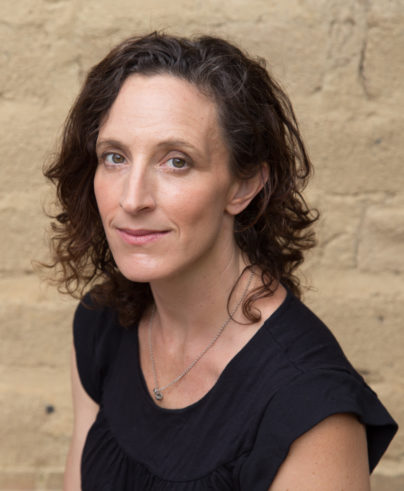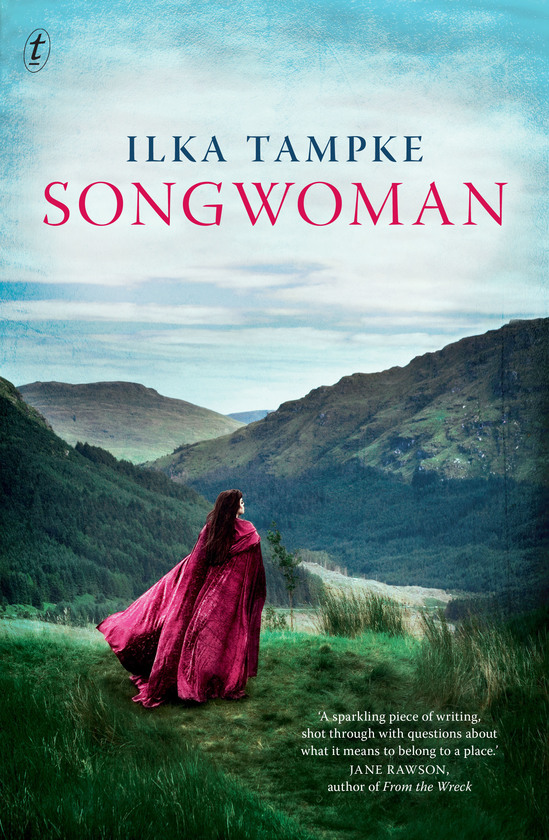MUBA 19 Spotlight: ‘Songwoman’ by Ilka Tampke
Songwoman by Ilka Tampke is the next book to feature in our shortlist for the 2019 Most Underrated Book Award
Songwoman is a bold historical novel set in Iron-Age Britain, and is a sequel to Tampke’s debut novel Skin. It revives the story of Ailia who finds her home ravaged by the Roman invasion and flees to the remote Welsh mountains. Her search for the leader of the resistance, Caradog, proves successful and she assumes the role of an advisor to the war king. But as they find themselves drawn to each other, Ailia realises she must make a terrible choice for the sake of her country.
From the judges:
A wonderfully escapist epic, bound to draw in lovers of historical fiction and fantasy—with an engaging narrative and a relatable hero. Ilka Tampke has mastered the tone and cadence of artful world-building and her setting—Britain during Roman occupation—feels well-drawn, without being overburdened with historical minutiae. The gripping plot follows the struggle for Anglo-Saxon independence in the face of a technologically advanced imperialist force, inevitably raising questions about the cyclical nature of oppression and those who levy it. Songwoman’s marginalised hero, Ailia, takes on the sadly still-all-too-relevant issues of cultural identity, racism and gender inequity, all set against a gripping plot rich in politicking, bloody battles and—of course—romance. A riveting read, with a good dose of historical fancy.

Interview with Author Ilka Tampke
When you were working on your first book Skin, had you planned on writing a sequel to it?
I was in the editing process with Skin when the story of Songwoman began to take shape. There was always a sense that there were more stories lurking within the world of Iron Age Britain, but it wasn’t until I read about the real-life figure Caratacus (whom I call Caradog) that a story idea burst into my head, at about three o’clock one morning. Once I had him take up residence in my imagination, there was no way I could leave his story untold. I saw a way for my protagonist and him to meet, and we were away.
Do you find yourself reflected in any of your characters?
The protagonist, Ailia, has many of my doubts and insecurities, and the same tireless energy to try and overcome them. But she has more courage than I do—she sleeps alone in wild places. I am too scared to do that! I also share Ailia’s deep grappling with what it means to be connected to land: What ties us to a place? Which kinds of connections take precedence over others? What are the moral obligations in moving into different landscapes?
What was your experience like working with Text Publishing?
Working with Text is a dream come true, and I am so grateful to be among their authors. I love that they are willing to support a book that sits between obvious genre categories. Songwoman was positively influenced by their editorial process, which was rigorous, creative and very enjoyable. They encourage authors to take creative risks and push the boundaries of their talents.
Which writers have inspired you?
Writers who relentlessly pursue a sense of truth in their writing. Kim Mahood and Marilynne Robinson are two examples of writers who seem to strip back layer after layer of cliché and the familiar to excavate something absolutely clear, truthful and beautiful in its insight.
I like writers who are concerned with the spiritual and natural worlds, such as Robert Macfarlane, the two women mentioned above, Roberto Calasso, Han Kang, Alexis Wright and Mary Oliver.
I love writers who use language unexpectedly, poetically and boldly like Max Porter, Margo Lanagan, Dorothy Porter.
I love historical fiction. Elizabeth Gilbert writes immersive, provocative historical fiction; and Laurent Binet turns the form on its head.
Lastly, four words: Richard Powers, The Overstory.
What are some of your writing rituals?
A large soy flat white, extra hot. I work with a personalised version of the Pomodoro method, which for me means one hour at the desk, followed by a few minutes break to do yoga or feed the pony. Repeat until school pick-up. I have lots of little treasured trinkets at my desk, and I always make sure I can see a tree when I am writing.
What do you do when you aren’t writing?
I teach fiction at RMIT University, which is utterly absorbing and a great deal of fun. I look after my two teenagers, which mostly means driving them to endless games of futsal and soccer. I care for my numerous animals and the five acres of land that we live on.
I try to make time to walk up Mount Macedon at least once a week, and I sing in my local choir. Gossiping with other writers over coffee is another high-priority activity.

